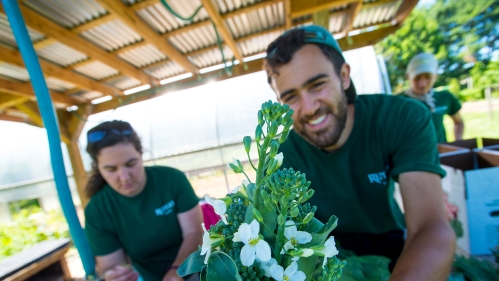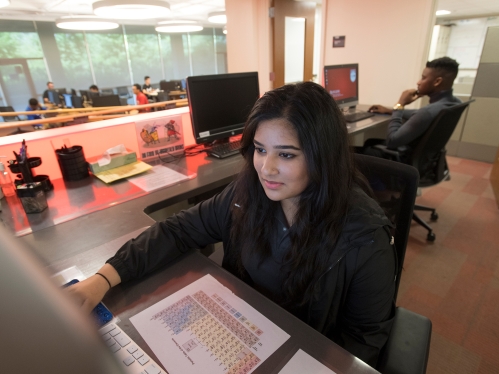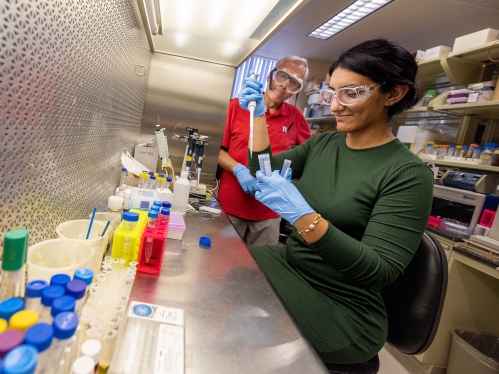
Experiential Learning
All Rutgers School of Environmental and Biological Sciences (SEBS) undergraduates must complete the core curriculum, which includes at least 3 credits of experiential learning. We hope that fulfillment of the experiential learning core requirement will lead you to explore many more opportunities throughout your time at Rutgers. For this reason, we recommend that you complete the core requirement as soon as is feasible.
What Is Experiential Learning?
Experiential learning is an engaged learning process whereby students "learn by doing."
We strongly believe that this is the best approach to career development. When you are actively engaged in the practical application of knowledge, you learn better, and develop skills that employers and post-graduate schools are looking for. These skills will help you select a major, decide on a future career path, and make you more marketable to future employers or graduate programs.

Benefits to You
- Gain practical experience for your planned career.
- Gain experience that will improve your application to graduate or professional school.
- Add relevant work experience and skills to your professional résumé.
- Expand your world view and develop an appreciation of community.
- Gain insight into your skills, interests, passions, and values.
- Gain self-confidence and a better understanding of course material in your classes.

Experiential Learning Opportunities
Experiential learning opportunities exist in a variety of course- and non-course-based forms and may include community service, service-learning, undergraduate research, study abroad, and culminating experiences such as internships, student teaching, and capstone projects.
For more information about Rutgers/SEBS Experiential Learning opportunities please see the following programs:
Major-Specific Opportunities
Please click on your specific requirements for your major. (Some academic programs require more than 3 credits of experiential learning.)
Information for Transfer Students
It is important that all transfer students start the experiential learning process as soon as they come to Rutgers. Check with your advisor right away so you can identify and complete your experiential learning on time for graduation.
Contact Us
Academic Programs
848-932-3000
Martin Hall, Room 109
advising@sebs.rutgers.edu